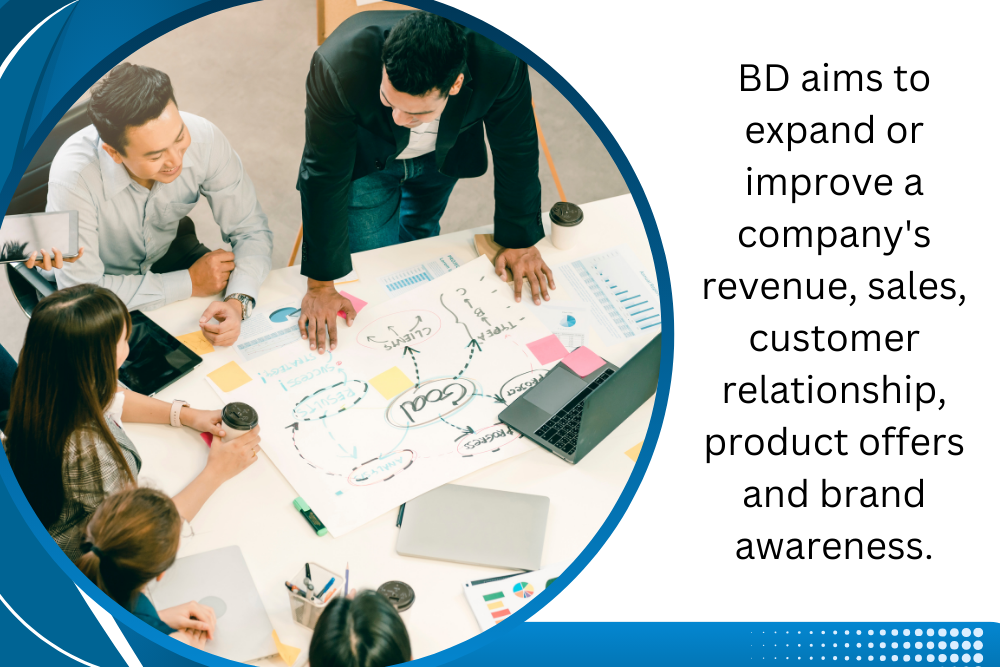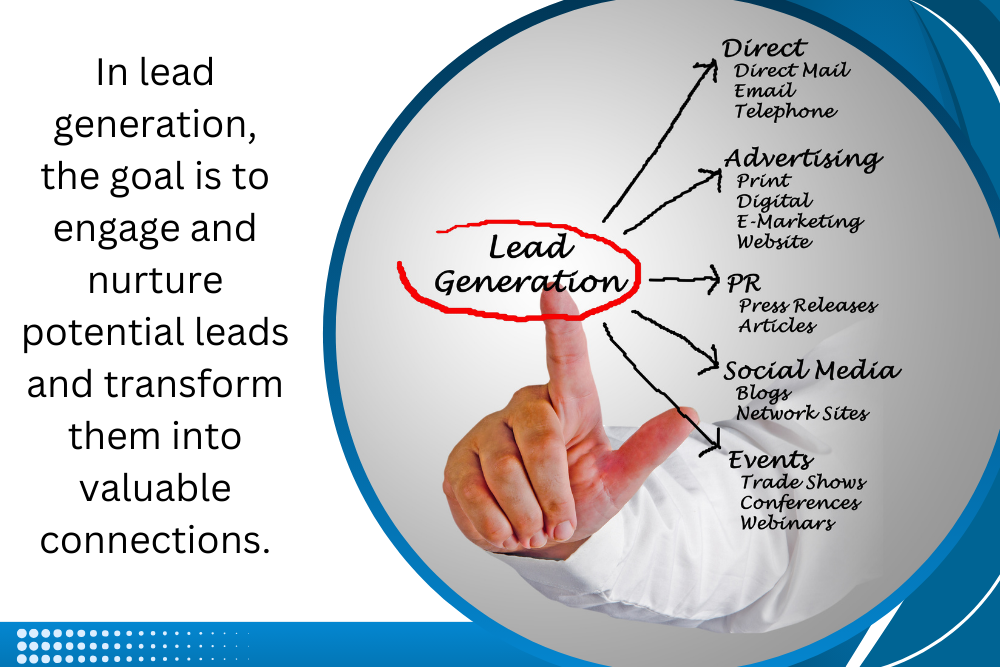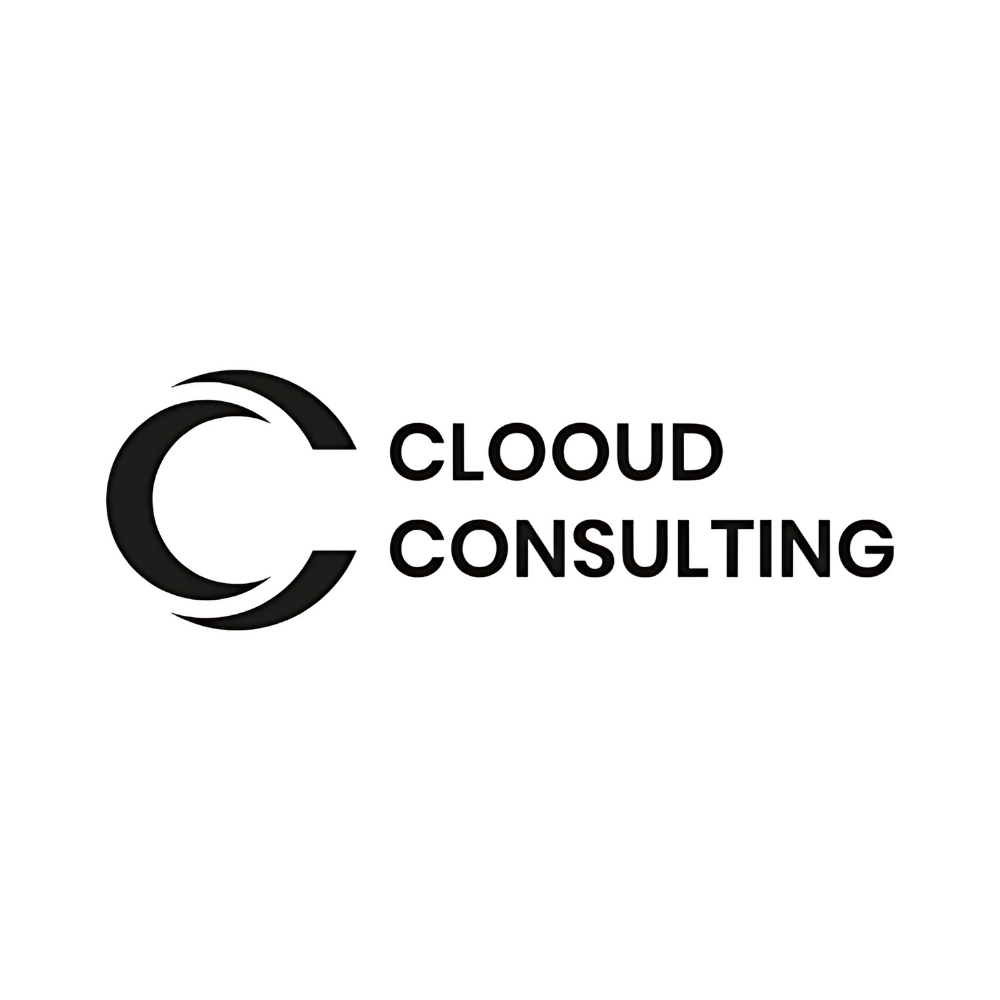Top 10 Business Development Agencies in Singapore Using Strategic Planning for Brand Building and Expansion
Investing in the right business development strategy is a game-changer for any organisation. Having the right resources in place gives your business an edge and reinvigorates ideas that could have otherwise been left out of the planning process. It is important to remember that success requires effort, and business development is no different.
Finding a consultant who has experience in developing strategies tailored to specific businesses, industries, and customer segments helps ensure that strategy execution will look and feel unique to your organisation. With strategic planning, accurate assessment of needs, skilled professionals, and positive attitudes, any company should see success with their business development efforts.
If you're seeking great business development services for your company, take a look at our curated selection of top-tier business development consulting firms. Their expertise extends beyond conventional approaches, offering fresh insights and alternative avenues for prospective growth.
How to Choose Business Development Services That Guarantee Your Company's Expansion Into New Markets
For business owners in Singapore, engaging a business development consultant is crucial for business growth. Consultants create a business development framework tailored to the unique demands of the local market, providing strategic insights and regulatory guidance. Their expertise proves invaluable in optimizing operations and identifying growth opportunities.
In the competitive Singaporean landscape, leveraging a consultant's tailored approach ensures that business owners can navigate challenges effectively by identifying new opportunities and implementing strategies to capitalize on them.

The Role of Business Development
It is imperative for companies across various industries to constantly seek out new opportunities for growth and expansion to stay relevant and flourish in an ever-evolving market. This is where the implementation of an effective business development strategy becomes paramount.
Identifying opportunities
Business development means capitalising on prospects for growth, which necessitates a thorough understanding of the market, client needs, and developing trends. By proactively pursuing new prospects, businesses can maintain a competitive edge and are able to adjust to evolving market dynamics. Whether it involves venturing into new markets, forging strategic alliances, or introducing new products, business development serves as a compass, guiding companies towards unexplored potential.
Building strategic partnerships
Successful business development relies on partnerships. Collaborating with other organisations through joint ventures, alliances, or strategic acquisitions opens doors to new resources, expertise, and technologies. These partnerships stimulate innovation and bolster a company's competitive advantage. Business development professionals are critical in identifying and cultivating partnerships that drive business success.
Sales and revenue growth
The objective of business development is to drive revenue growth and improve profitability. This is achieved by capitalising on new business opportunities, expanding market reach, and optimising existing operations. Companies that execute these strategies attain sustainable financial success. Business development efforts encompass various initiatives, such as optimising pricing strategies, creating new sales channels, enhancing customer relationships, and implementing innovative marketing campaigns. These initiatives aim to increase revenue streams, improve profit margins, and ensure the business's long-term viability.
Market expansion
Business development specialists play a pivotal role in market expansion by setting and achieving SMART goals: specific, measurable, attainable, and relevant and time bound. Development consultants meticulously analyse target markets, identify opportunities, and devise strategies for sustainable growth. By leveraging their expertise, these professionals establish strategic partnerships, drive revenue, and expand market presence. The implementation of smart goals ensures a focused and measurable approach, allowing business development specialists to navigate complexities and position companies for success in new markets. Their strategic acumen and goal-oriented mind-set are instrumental in fostering long-term expansion and profitability.

The Business Development Process
The business development process varies based on the company's requirements, capabilities, leadership, and available capital. However, several commonly followed steps are outlined:
Market research and analysis
Market research is integral to the business development process, guiding sales managers and business development representatives in strategic decision-making. Thorough analysis of market trends, competitor landscapes, and customer preferences informs targeted approaches. Armed with valuable insights, sales managers and business development representatives can tailor their efforts to maximize opportunities, foster meaningful connections, and ensure that their strategies align with the dynamic demands of the market for sustained growth.
Strategy development
Defining precise objectives for business development is crucial to leverage research findings. These goals encompass revenue targets, market expansion objectives, customer acquisition goals, and product/service development targets. By establishing clear goals, the business development process gains focus and direction.
In addition, use diverse resources such as networking, industry databases, online platforms, and referrals to generate a pool of possible leads. Identify companies or individuals that align with the target market criteria and have a chance to become customers. Assess and qualify leads based on predetermined criteria to ascertain their potential value and suitability.
Generating and qualifying leads
Lead generation is a vital component of the business development process, focused on identifying and cultivating potential leads. Your marketing department can work with a development consultant to find, attract, and convert potential leads into customers or partners. Whether through digital marketing, networking, or other channels, the goal is to engage and nurture leads, transforming them into valuable connections. A well-executed lead generation strategy is essential for sustaining growth and ensuring a steady influx of potential leads for ongoing business development efforts.
Implementation
Engage with qualified leads and cultivate relationships through effective communication. You can use networking events, personalised emails, industry conferences, and social media interactions to establish trust and credibility. As your connection strengthens, present solutions that align with the client's needs. Showcase the value proposition of your organisation's offerings, emphasising key benefits and your competitive edge.
Evaluation and adaptation
Evaluation and adaptation are crucial in the business development process, requiring a keen focus on key performance indicators (KPIs). Regularly assessing the effectiveness of implemented strategies ensures alignment with business goals. By meticulously analyzing KPIs, businesses can identify areas for improvement, fostering an agile approach that allows for quick adaptations. This iterative process not only enhances overall performance but also positions organizations to respond proactively to market dynamics, ensuring sustained success in the evolving business landscape.

Skills and Qualities of a Successful Business Developer
Success in business development requires professionals to possess a wide range of skills. These skills empower them to navigate the intricate landscape of business expansion, forge fruitful partnerships, and foster innovation. Below are vital skills needed in business development:
Strategic thinking
Strategic skills involve critical thinking, analysing complex situations, and making informed decisions that align with an organisation's long-term goals. Creating an effective strategy requires long-term planning, problem-solving, risk management, and solid business acumen. Strategic thinkers anticipate industry trends, establish clear objectives, adapt to change, and collaborate seamlessly to create and enforce an effective business development strategy.
Leaders must possess an analytical mind-set, a comprehension of the business landscape, and the capacity to influence others. Cultivating strategic skills is imperative for leaders to adeptly navigate challenges, propel growth, and attain enduring success.
Communication skills
One responsibility of a business development professional is effective communication with stakeholders, clients, and customers. Strong verbal communication skills are vital for articulating a company's offerings, making cold calls, and leveraging existing relationships for referrals. The ability to listen attentively enables a business developer to ask relevant questions and understand client requirements. Additionally, proficient written skills enhance business communication and allow professionals to make comprehensive proposals.
Adaptability
Adaptability and flexibility are critical skills needed for business developers. These attributes empower professionals to swiftly adjust strategies, navigate uncertainties, and capitalize on evolving opportunities. Such skills also enhance resilience to ensure that business developers can thrive amidst change and contribute to sustained growth.
Analytical abilities
Business development professionals rely on their analytical skills to collect and interpret data, conduct market research, and assess business opportunities. They make well-informed decisions by analysing competitor activities, and customer insights. Strong analytical skills empower professionals to identify patterns and devise data-based strategies.
Relationship building
Developing strong relationships is a vital component of business growth. Professionals must foster trust and credibility with partners, clients, and stakeholders. Successful relationship-building entails active listening, empathy, and a deep understanding of others' needs and interests. Business development experts cultivate long-term partnerships and drive sustainable business growth by nurturing these connections.

Business Development Strategies
For any company aiming for growth, it is crucial to incorporate business development into its overall strategy. Enhancing your brand is achieved through various means, but some methods are more effective than others in helping you reach your goals. The objective is to identify the approaches that enable you to attain your targets successfully.
Innovation and product development
To thrive in business and outpace competitors, embracing innovation is key. Offering a distinctive experience is important for attracting and retaining customers. After all, people are drawn to novel products and services. So, let your creativity flow and generate remarkable ideas that set you apart from the rest.
Introducing innovation into new processes, ideas, methods, and workflows benefits you and your clients. However, it is important to conduct thorough research beforehand to identify pain points customers face in your specific niche. By innovating solutions for these pain points, you ensure that your customers welcome your ideas. Therefore, take the time to brainstorm and develop winning concepts that are grounded in a deep understanding of your field.
Networking or relationship-building
Networking is a potent business development strategy as it enables you to forge connections that can drive success. Attend industry events, seminars, and conferences to meet professionals in your field. Cultivate genuine relationships by actively listening, offering assistance, and sharing insights. Leverage social media platforms to engage with industry leaders and potential clients. Regularly participate in online forums and discussions to showcase expertise.
Additionally, nurture existing connections through regular communication and personalized interactions. These relationships can lead to collaborative opportunities, referrals, and valuable insights. A robust network enhances your business visibility and credibility, opening doors to new partnerships and clients. Ultimately, the art of networking transforms professional connections into a powerful catalyst for sustainable business growth.
Joint ventures
Joint ventures are agreements between two or more businesses to collaborate on a product or service. By teaming up with fellow entrepreneurs, you can expand your business operations. You can explore various avenues, such as combining marketing lists or creating package deals showcasing different products. Moreover, you can even develop new products for your joint venture. This approach allows you to maintain autonomous business operations while reaching out to new customers.

Choosing a Business Development Consultant
The success of some of the top companies in the country is closely tied to strategic business consulting, which underlines the importance of engaging professional consultants. When selecting a business development consultant, business owners must prioritize expertise, understanding their industry and the nuances of the Singaporean market. This consultant will assist you create a business development strategy tailored to your specific needs and aligned with regulatory requirements.
The following steps will help business owners choose the right consultant to help them meet their business goals:
Assessing your business development needs
When selecting a business development consultant, assessing your needs is crucial. Generalists offer a broad skill set, suitable for diverse challenges, while specialists bring deep expertise in specific areas. For enterprise-scale businesses, consultants specializing in complex organizational structures and large-scale operations may be ideal. On the other hand, early-stage start-ups benefit from consultants adept at navigating the unique challenges of emerging markets and rapid growth.
Consider the consultant's track record in developing effective marketing strategies tailored to your business size and goals. Whether a generalist or specialist, align the consultant's expertise with your distinct requirements for a tailored approach that maximizes your business development potential.
Choosing the right type of consultant
When considering which type of consultant to hire for a business development role, it is significant to understand the differences between generalists and specialists. Generalists have experience in many different areas and offer broad-based advice on strategy, operations, marketing, and finance. Meanwhile, specialists focus their skills on one or two specific areas and offer more tailored advice in those fields.
Industry-specific consultants are experts in the same industry that your business operates in and have a deep understanding of the challenges and opportunities that you could face. They are valuable for companies operating in highly regulated industries, as they will be familiar with relevant regulations and best practices to avoid potential pitfalls.
Finally, it is important to determine whether you need the services of a freelancer or consulting firm. Freelancers could offer more flexible and cost-effective solutions for smaller projects. However, consulting firms provide larger business development teams with deep experience in multiple areas that would be challenging to source through independent contractors. The decision will depend on your individual needs and budget.

Reviewing qualifications and expertise
Look at the prospective business development consultants' professional backgrounds, considering any qualifications they could have obtained or any specific industry experience they can offer. It is also critical to check whether the consultant has been certified by the Singapore Business Advisors and Consultants Council (SBACC). This certification indicates that the consultant has achieved certain knowledge, experience, and ethical standards.
Checking for compatibility and communication
When choosing a business development consultant, it is vital to ensure that they are compatible with your organisation and that their communication style suits the needs of your team. To assess this compatibility, consider whether the consultant has experience working with teams similar to yours in size and scope.
Reviewing past client testimonials or company reviews using the consultant's services is also helpful. This gives you an insight into how the consultant works with clients and whether they positively impact their business operations. When possible, arrange a meeting or call with the consultant before selecting. This will allow you to understand their communication style better and ensure that it suits your needs.
Budget considerations
When considering consulting services, it is crucial to shift your focus from the cost to the value they bring. Seek out a firm that offers competitive pricing without compromising on quality. Remember that the right consulting firm yields substantial return on investment (ROI). Assess the potential ROI and consider the long-term benefits when evaluating the cost-effectiveness of the consulting firm.
Contract review
When reviewing the contract terms and conditions, you must consider several aspects. Ensure all legal and ethical considerations are addressed in the document, such as confidentiality and non-disclosure clauses. Moreover, check for dispute resolution procedures in case any issues arise during the engagement. Also, ensure that all parties agree to the timeline and scope of work outlined in the contract. Once these points are reviewed and both parties are satisfied, a business development consultant is formally selected.

Due diligence and background checks
When selecting a business development consultant, it is important to conduct due diligence and background checks to ensure they are qualified to do the job. This includes verifying their qualifications, checking for conflicts of interest, and ensuring compliance with relevant regulations. It is also beneficial to inquire about past successes or achievements the consultant has achieved in similar roles. This will better understand the consultant's capabilities and potential to contribute to your business.
Managing the consultant relationship
Establishing clear expectations and goals from the beginning of the relationship is critical when hiring a business development consultant. This should include all aspects of the project—from timelines and budget to responsibilities and deliverables. Regular progress updates are also critical for successful communication between both parties.
During these updates, feedback should be provided by both sides to ensure that any possible issues are addressed on time and that the project is headed in the right direction. Finally, it is important to be open to course correction and adjust as needed to ensure that the partnership provides long-term value to the business.
Evaluating success and performance
When evaluating the success and performance of a business development consultant, it is important to measure key performance indicators, specific metrics that measure how well objectives are being met. These may include the number of leads generated or sales made due to their services.
It is also vital to assess the ROI and value delivered. This involves considering factors such as the cost of their services versus the benefits obtained from them. Getting feedback from clients and employees is vital to improve the services provided over time. Such continual improvement will help ensure that the consultant continues to deliver successful results for your business.
Business development consulting offers valuable services that help organisations identify opportunities and take advantage of potential markets. It also helps develop better strategies, create an effective implementation plan, and achieve business growth objectives. If you're seeking to invest in the growth of your business and drive continuous improvement, explore our directory of the top consulting firms in Singapore specialising in business development services.
Latest Becozon Offer
Boost your business with these exclusive deals by our esteemed Becozon partners
Looking for a CRM software?
Get customisable, cloud-based sales and operations CRM software suitable for any industry. Contact us for a demo today!
Contact Us




